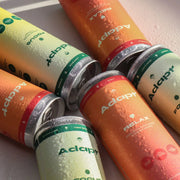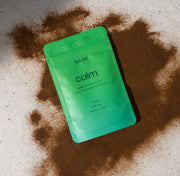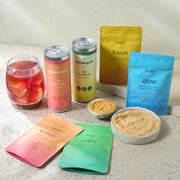What Does Lion's Mane Taste Like?
Lion's Mane has a mild, slightly earthy flavour. Most people describe it as:
- Subtle umami (think miso soup vibes)
- Light citrus notes (like weak lemon and ginger tea)
- Gentle earthiness without being overwhelming
It's not aggressive. It's not bitter. And if it is? That's your first red flag.
Why Some Lion's Mane Tastes Like Dishwater
Bad Lion's Mane extracts taste absolutely awful. We're talking bitter, gritty, really bad.
This isn't because Lion's Mane is naturally disgusting. It's because cheap extraction processes leave behind all the stuff you don't want - mycelium grown on grain, fillers, poorly processed mushroom bodies that taste like dirt.
Quality Lion's Mane, extracted properly from the fruiting body (the actual mushroom, not root-like mycelium), tastes clean. Mild. Herbal and pleasant.
This is why some companies put them in capsules - typically to hide poor quality Lion's Mane.
The Extraction Story
Most mushroom supplements use what's called mycelium-on-grain. Basically, they grow mushroom roots on rice or oats, then grind the whole thing up - grain and all.
This is cheap. This is easy. This also means you're getting a ton of starch and very little actual mushroom.
Proper extraction takes the fruiting body - the part that actually contains the beneficial compounds - and uses hot water or dual extraction methods to pull out the good stuff (beta-glucans) while leaving behind the gritty, bitter components.
The difference in taste? Night and day.
The difference in effectiveness? Even bigger.
What You Should Actually Taste in Your Lion's Mane
When we were developing our Focus drink and Lion's Mane powder at Adapt, we tested extracts from multiple suppliers. The variation was wild.
The cheap stuff tasted bitter, grainy, unpleasant.
The high-quality extracts we landed on? Barely noticeable. A whisper of earthiness. A hint of umami that actually works with other flavours.
In our Focus drink, we pair Lion's Mane with ginger and lemon. The flavours complement each other naturally because quality Lion's Mane doesn't fight against other ingredients.
In our Lion's Mane powder, it dissolves clean and tastes mild enough to add to coffee, smoothies, or hot water without ruining your morning.
Why Quality Matters Beyond Taste
The compounds that actually support cognitive function - hericenones and erinacines - are delicate.
Cheap processing destroys them. Heat them wrong, extract them poorly, or use the wrong part of the mushroom, and you end up with a supplement that tastes bad AND doesn't work.
We use dual-extracted Lion's Mane standardised for polysaccharides and beta-glucans. This means hot water extraction for the water-soluble compounds, alcohol extraction for the ones that need it, and quality testing to ensure what's on the label matches what's in the can.
How to Taste Test Quality
If you're buying Lion's Mane supplements, here's a quick test:
Mix a small amount in water and taste it straight. If it's:
- Mildly earthy with a clean finish = probably good quality
- Slightly sweet or umami = decent extraction
- Bitter and gritty = skip it
Also check the label. Look for:
- Fruiting body (not mycelium)
- High beta-glucan content
- Transparent dosage information
If the label just says "Lion's Mane extract" with no other details, that's another red flag.
The Bottom Line
Lion's Mane should taste mild, earthy, and clean. If it doesn't, you're either using low-quality extract or something's gone wrong in the processing.
The flavour matters because it's directly connected to quality. And quality matters because that's the difference between actually supporting cognitive function and just drinking expensive mushroom dust.
At Adapt, we obsessed over this. Tested multiple suppliers. Tried different extraction methods. Reformulated until the taste and efficacy matched what we'd want to drink ourselves.



